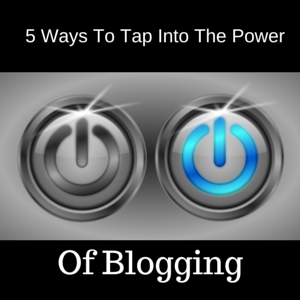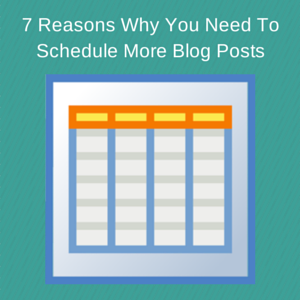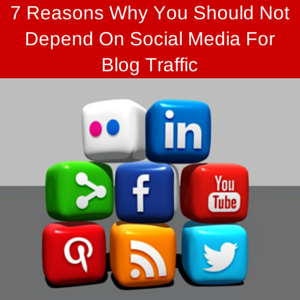
It is a well-known fact that a majority of blogs (about 90%) make little to no revenue. The saying that 10% of the people in the world make 90% of the revenue is similar to the blogging model. A handful bloggers are making the bulk of the profits.
The main reason many blogs are not making money is because most bloggers do not know how to effectively make money with their blogs. All these bloggers need is the right knowledge and the ability to implement that knowledge. This blog post will identify six of the main reasons why most blogs don’t make any money. Then, it is up to you to act upon this knowledge so your blog can become successful.
#1: No Traffic
One of the most common reasons why blogs do not make revenue is because they do not generate traffic. Without traffic, no one will know who you are. You can write the best blog posts on the web and provide your visitors with the best products, but that won’t matter if your blog does not get any visitors. This article goes into detail about several methods you can use to increase your blog traffic.
#2: No Subscribers
Having no subscribers for your blog is another telltale sign that your blog is in trouble. The money is in the list. That’s what the bloggers with six figure incomes say. You need to optimize your blog so it converts more of your readers into subscribers. Of course, your blog needs to get traffic to get more subscribers, but not all popular blogs get numerous subscribers.
There was a point when I got over 500 daily visitors but only 1-2 subscribers every month. That was not because my content was bad (you, as the reader, are the judge of that). Instead, it was because I poorly optimized my blog for collecting email addresses. When I started to optimize my blog, I quickly went from gaining 1-2 subscribers every month to gaining 10-20 subscribers every day. You can learn some of the methods I use to gain subscribers in this article.
[tweetthis twitter_handles=”@MarcGuberti” url=”http://bit.ly/1yPt2VJ”]Your email list is a big part of your success as a blogger.[/tweetthis]
#3: No Social Proof
Regardless of whether you sell products, promote other people’s products, or make money with advertisements, you must have social proof to make you stand out from the crowd. Social proof indicates that you are popular, and people love to gravitate towards popular things. If you see enough people doing or buying something, you may follow through in that process (sometimes, it is this action that can bring negative consequences, but this knowledge is useful for marketers). Would you rather go to the #1 restaurant in the world or the restaurant that opened for the first time? Would you rather hear advice from Bill Gates or some random entrepreneur? Would you rather buy products from successful individuals or individuals who are starting out?
#4: No Income Streams
One of the worst mistakes a blogger can make is having no income streams set up on his blog. Income streams allow bloggers to bring in revenue that make it possible to become a full-time blogger. There are a variety of income streams to choose from. You can create your own training courses, write your own books, promote other people’s products as an affiliate, and do a variety of other things to create more income streams for yourself.
#5: No Products
Some people, in a quick rush to have an income stream on their blogs, often stuff their blogs with affiliate links. First off, you should only use a few affiliate links. Overstuffing your blog with affiliate links will look like a desperate plead for the sale, and it will ruin your blog’s reading experience. Instead, you need to create products. Creating your own products leads to more sales, higher commissions (maybe even a 100% commission), and most importantly, a strong relationship to build between you and the customer.
#6: Reliance On Advertisements
I understand that some bloggers make strong incomes from their advertisements. However, these bloggers are typically the ones with hundreds of thousands of monthly visitors. Most bloggers are lucky if they earn over $10/month from their advertisements. The revenue generated from advertisements is generally low since few blogs are getting hundreds of thousands of monthly visitors.
In addition to producing a low revenue, advertisements also take your readers away from your blog. Instead of promoting an advertisement on your blog, why not promote one of your products? That way, the relationship between you and your readers will be strengthened. People want to see you and what you stand for, not another car ad that generates $0.02 per click.
In Conclusion
Making money on a blog is not an overnight success. Yes, another blogger said the same phrase, and it might drive you crazy. When I was a newbie and read other bloggers’ articles every day about blogging, the tip almost every blogger said was that blogging is not an overnight success.
It drove me crazy just as much as it might be driving you crazy. However, realizing that blogging is not an overnight success represents a simple approach instead of a complex one. That one sentence represents a simple approach that says, “Don’t give up on the journey you wish you pursue with your blog.”
It is important for you to avoid making these same mistakes. If you are making these mistakes on your blog, the first thing you need to do is fix them. Just launch your own product. It doesn’t have to be perfect. Then, launch another one and improve the process as you go. Grow your traffic and convert more of that traffic into subscribers. Build your social proof. And don’t forget to stop relying on those pesky advertisements all together. They drive your readers away from your blog.
Which of these mistakes do you make? Do you have any other suggestions for bloggers who want to make more money? Please share your thoughts and advice below.




